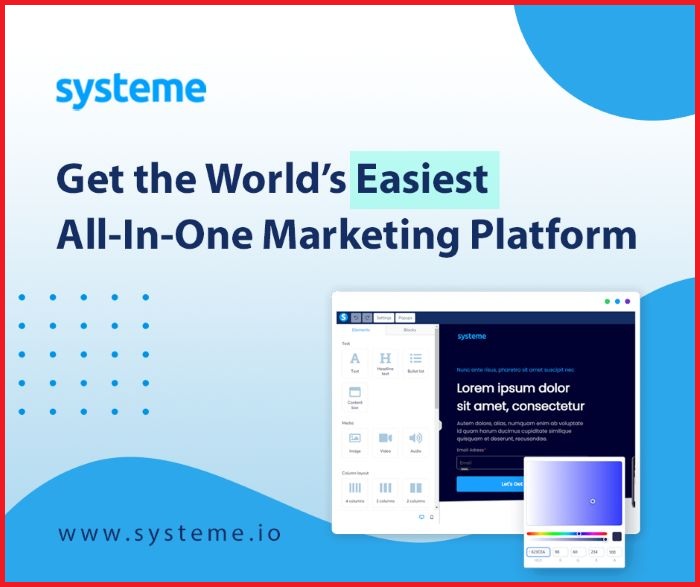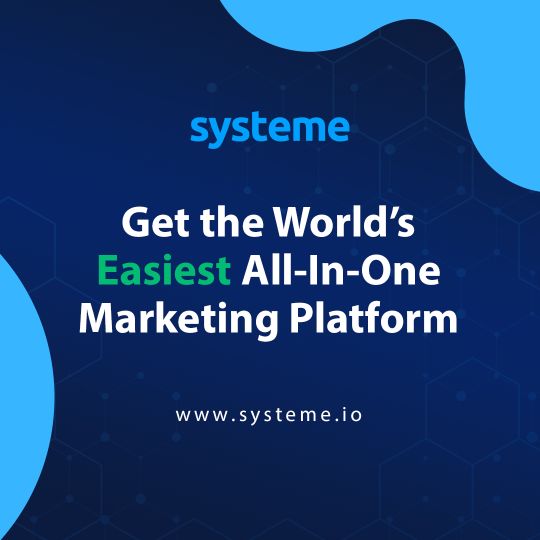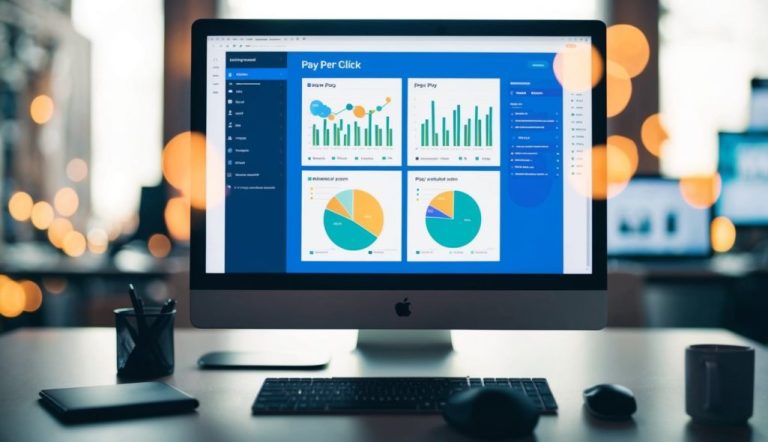If you’re navigating the world of online advertising, you need to understand the role of pay-per-click (PPC) experts. These professionals help optimize digital campaigns to make the most of your advertising budget. Hiring a PPC expert can significantly increase your return on ad spend and reach your marketing goals. They focus on boosting metrics such as click-through rates and conversion rates, ensuring that every dollar spent contributes to your success.

Choosing the right PPC expert means finding someone who can strategize and manage your ads across multiple platforms like Google, social media, or even Amazon. They know how to craft campaigns that not only attract clicks but also convert those clicks into sales. By leveraging their knowledge, you ensure that your ads are consistently performing at their best.
Hiring a capable PPC expert can seem daunting due to the wide array of choices. Seeking out agencies with proven track records, like those featured on platforms such as Clutch.co or DesignRush, can guide you to make informed decisions. You’ll find the right partner to direct your advertising efforts, enhance your digital presence, and ultimately drive your business forward.
Key Takeaways
- PPC experts optimize your ad spend for maximum returns.
- They enhance performance by managing ads on various platforms.
- Selecting a skilled PPC expert is key to digital marketing success.
Understanding Pay-Per-Click Advertising
Pay-per-click (PPC) advertising is a digital marketing strategy where advertisers pay a fee each time their ad is clicked. This method helps businesses enhance their online visibility and drive traffic to their websites. By understanding how PPC works and its potential benefits, you can make informed decisions to effectively use this tool for your business.
What Is PPC?
Pay-per-click is a form of online advertising where businesses bid on keywords relevant to their services or products. When someone searches for these keywords, the ad appears prominently in the search results. Businesses pay only when a user clicks on their ad. Platforms like Google Ads are most commonly used for PPC. This advertising model ensures you’re paying for traffic directed to your site.
PPC campaigns offer flexibility and control. You can adjust your budget, target specific audiences, and measure success through analytics. It’s essential to use relevant keywords to improve click-through rates and return on investment (ROI). Learning how to create engaging ads can lead to higher quality scores, which decreases costs and improves ad placement.
Benefits of PPC for Businesses
PPC advertising offers businesses several advantages. One significant benefit is immediate visibility on search engines, which helps attract potential customers quickly. Unlike organic search efforts, PPC doesn’t require waiting for rankings to improve. This is ideal for new businesses seeking to establish an online presence.
Another key benefit is precise targeting options. You can target ads based on location, demographics, time of day, and even specific devices. This level of targeting helps ensure that your ads reach the right audience. Additionally, PPC provides measurable results with tools that track clicks, conversions, and overall campaign effectiveness, allowing businesses to calculate their ROI accurately. These insights can guide future marketing decisions and strategies.
Engaging PPC experts can optimize campaign performance by focusing on these benefits, ensuring effective use of advertising budgets.
Developing a PPC Strategy
Creating a successful PPC strategy involves understanding the core principles of effective campaigns, conducting thorough keyword research, and crafting ads that engage potential customers. These elements ensure that your ads reach the right audience and achieve optimal results.
Principles of Effective PPC Campaigns
When developing a PPC strategy, focus on clear objectives. Decide whether you want to boost website traffic, generate leads, or increase sales. Setting measurable goals helps you evaluate the campaign’s success.
Budget allocation is essential. Determine how much you are willing to spend and distribute funds strategically across various platforms. Monitoring performance regularly allows you to adjust your strategy to maximize returns.
Consider the target audience’s search intent. Understanding this helps tailor your ads to meet their needs, making them more relevant and likely to generate clicks.
Keyword Research for Targeted Reach
Keyword research is a cornerstone of PPC marketing. Start by identifying terms and phrases your audience uses when searching for products or services like yours. Using tools like Google Keyword Planner can help in this process.
Select both broad and long-tail keywords to enhance your reach. While broad keywords attract a wider audience, long-tail terms are more specific and often lead to higher conversion rates.
Regularly update and refine your keyword list to stay in line with changing trends and search intent. Avoid irrelevant keywords that waste your budget without providing value.
Crafting Compelling Advertisements
Creating compelling ads is key to capturing user attention. Ensure your headlines are engaging and include a strong call to action. Highlight unique selling points and benefits to make your offers appealing.
Use ad extensions to provide additional information, like location or contact details. This enhances the ad’s visibility and provides more ways for potential customers to engage with you.
A/B testing different ad versions helps identify what resonates with your audience. Based on results, optimize your ads to improve performance. This iterative process is crucial for a successful digital marketing strategy.
Optimizing for Conversion
To boost conversion rates, focus on enhancing the landing page experience, employing A/B testing, and using conversion rate optimization (CRO) techniques. By addressing these areas, you can significantly improve your ad performance and achieve better results.
Improving the Landing Page Experience
Your landing page is crucial in converting clicks into actions. To enhance this experience, make sure the page is fast and responsive. A slow-loading page deters visitors, reducing conversion rates.
Design with a clean layout and easy navigation. Use clear and engaging headlines along with concise, compelling content that aligns with your ad.
Incorporate trust signals like customer testimonials and security badges. These elements reassure potential customers and can increase their willingness to convert.
A good landing page includes a strong call-to-action (CTA). Ensure your CTA stands out and is positioned prominently to guide visitors toward conversion.
A/B Testing for Better Results
A/B testing helps you determine which elements of your landing page drive conversions. Begin by selecting specific elements to test, such as headlines, images, or CTAs.
Run tests by changing one element at a time. This allows you to clearly see which changes impact conversion rates.
Use data-driven insights to make informed decisions. Analyze results based on metrics like click-through rates and completion rates to understand customer preferences.
Keep running tests to refine and improve the effectiveness of your landing page. Remember, ongoing testing and analysis are key to maximizing conversions.
Conversion Rate Optimization Techniques
Conversion rate optimization (CRO) is about using strategies to turn more visitors into customers. First, identify where users drop off in their journey. Use tools like heatmaps and session recordings to see how they interact with your site.
Apply what you learn to remove obstacles. For example, streamline forms to make them easier to fill out, or simplify navigation to improve user experience.
Engage visitors by using personalized content. Tailor messages and offers based on user behavior and preferences to increase relevance and appeal.
CRO is an ongoing process. Regularly review and adjust your approach based on user feedback and behavioral data for continuous improvement.
Tracking PPC Performance
To effectively track PPC performance, focus on key metrics, understand the importance of quality score, and use analytics for informed decision-making. These aspects help improve your ad campaigns and ensure you get the best return on investment.
Key Metrics to Track
Tracking the right metrics is essential for assessing the success of your PPC campaigns. Important metrics include:
-
Click-Through Rate (CTR): Indicates how often people click your ad after seeing it. A higher CTR means your ad is engaging.
-
Cost Per Conversion: Measures how much you spend to gain a customer. Lowering this cost can improve profitability.
-
Return on Ad Spend (ROAS): Evaluates the revenue generated versus the cost of advertising. A higher ROAS indicates a successful campaign.
These metrics help you understand what works and what needs improvement.
The Importance of Quality Score
Quality Score plays a significant role in affecting your PPC performance. It is a measure used by platforms like Google Ads to determine the quality and relevance of your ads, keywords, and landing pages. A higher Quality Score can lead to better ad positions and lower costs.
To improve your Quality Score, ensure your ads are relevant and your landing pages provide a good user experience. Regular PPC audits can help identify and fix areas where your Quality Score might be lagging. By focusing on Quality Score, you can optimize your ads for better visibility and cost-efficiency.
Utilizing Analytics for Data-Driven Decisions
Utilizing analytics tools is vital for tracking PPC performance effectively. Tools like Google Analytics offer insights into user behavior, helping you understand how visitors interact with your site after clicking an ad. You can track conversion paths, segment audiences, and analyze performance across different channels.
Data-driven decisions allow you to optimize bids, refine targeting, and adjust budgets based on actual performance. This approach ensures your PPC strategy remains adaptive and effective, maximizing potential returns.
Managing Ads Across Platforms
To make the most of your pay-per-click campaigns, it’s important to understand how to manage ads effectively across different platforms. Each platform, whether it’s a search engine or social media site, comes with its own set of strategies and tools to optimize ad performance.
Google Ads and Search Engine Marketing
When it comes to search engine marketing, Google Ads is crucial. With Google Ads, you can target specific keywords to reach users actively searching for similar products or services. Bidding on the right keywords is key, and using Google’s Ad Rank system helps you determine your ad’s position on the search results page, which can impact cost-per-click (CPC) and visibility.
Use tools like Google Analytics to track and measure your ad campaigns’ success. Regularly adjust bids and budget allocation based on performance data. For deeper insights into managing PPC campaigns, exploring resources like PPC Experts: What You Should Know Before Hiring PPC Experts can be beneficial.
Social Media Advertising: Facebook Ads and Beyond
Social media advertising offers a unique way to reach targeted audiences. Facebook Ads provide the ability to target users based on demographics, interests, and behaviors. When managing paid social campaigns, it’s vital to create compelling visual ads that resonate with your audience.
Experiment with different ad formats, including image, video, and carousel ads, to find what works best for your goals. Platforms like Instagram and TikTok also offer opportunities to connect with younger audiences. Each social platform has its own strengths that you can leverage to boost engagement and conversions. For more insights on managing ads across platforms, Pay Per Click Management discusses different advertising strategies.
E-commerce PPC: Amazon Ads Specialization
For e-commerce businesses, Amazon Ads is a powerful tool for promoting products directly on the Amazon marketplace. Sponsored Product Ads and Sponsored Brand Ads are common types to consider. These allow you to highlight specific products or brands to shoppers already searching for related items.
Optimizing Amazon ad campaigns involves selecting relevant keywords and understanding Amazon’s bidding system. Monitoring the conversion rate and adjusting your strategy based on real-time data is essential. To learn more about how experts can guide successful campaigns, review Expert PPC Services.
Advanced PPC Techniques
In pay-per-click advertising, certain advanced methods can significantly enhance your campaigns. By using strategies like remarketing, long-tail keywords, and audience targeting, you can improve your reach and increase your return on investment.
Remarketing Strategies
Remarketing is a powerful tool that lets you reconnect with users who have interacted with your site but didn’t convert. You can set up targeted ads to implement this. These ads will follow these users across their web journey. They serve as reminders and can be tailored to display products they viewed or abandoned in a cart. This will increase the likelihood of a sale.
To make the most of remarketing, use segmentation to create specific audience groups. This allows for more precise messaging tailored to different levels of interest and engagement. You can also adjust bid amounts based on user actions. This ensures your budget is spent on the most promising leads. By continually testing ad variations, you can refine these strategies over time for better results.
Exploiting Long-Tail Keywords
Long-tail keywords are search queries that are longer and more specific. Though they have lower search volume, they often attract users with high purchase intent. By optimizing for these keywords, you can improve your ad relevance and reduce your cost-per-click. This often results in better ROI.
To effectively use long-tail keywords, start by researching phrases that closely match your product offerings. Tools like Google Keyword Planner can assist in finding these opportunities. Integrate these keywords naturally into your ad copy and landing pages to enhance search engine optimization. This not only helps in improving ad performance but also assists in capturing niche audiences looking for specialized products or services.
Audience Targeting and Segmentation
Audience targeting is crucial for maximizing the efficiency of your PPC campaigns. By segmenting your audience, you can tailor your ads to specific demographic, behavioral, or interest-based groups. This personalized approach makes your ads more relevant to viewers, increasing click-through rates.
Start by analyzing existing customer data to identify different audience segments. Create customized ads that appeal to each segment’s interests and behaviors. Platforms like Google Ads and Facebook offer robust targeting options. This allows you to focus on specific age groups, locations, or user interests. Testing different targeting strategies can help you identify which segments are most responsive. This allows you to allocate budget and resources more effectively.
The Role of Creativity in PPC
Creativity plays a crucial role in pay-per-click (PPC) campaigns. It’s essential for grabbing attention and making your ads memorable. Creative elements such as design and video enhance the effectiveness of advertisements. Meanwhile, clear communication ensures your message reaches the audience efficiently.
Design and Video in Advertisements
Incorporating design and video in PPC ads can significantly impact your campaign’s success. Graphic design adds visual appeal, drawing the eye and improving engagement. Bold colors, clear fonts, and strategic placement of text are key to achieving effective design.
Videos can bring your ads to life. These allow you to convey complex messages quickly and engage viewers emotionally. Keeping videos short yet informative ensures they hold the audience’s attention. Animation or live-action elements can highlight the features of your product or service.
Strategic use of design and video builds brand recognition. Consistent visual motifs across ads reinforce your brand’s identity. By investing in professional design and video production, you ensure your ads stand out in a crowded digital space.
Effective Communication Through Ads
Communicating effectively in PPC ads is about delivering your message clearly and concisely. Crafting compelling ad copy is crucial; it needs to be direct and persuasive. Using strong calls-to-action (CTAs) encourages users to click and engage with your content.
To tailor your message, consider your audience’s needs and preferences. A/B testing can help refine your approach, as different wording or emphasis might appeal to distinct segments.
Be mindful of language simplicity to avoid confusing potential customers. Break down complex offers into straightforward benefits. Clarity ensures that your message is not lost and maximizes the likelihood of converting clicks into valuable actions.
Financial Aspects of PPC
Managing the financial side of PPC advertising is crucial for getting the best results from your campaigns. You need to understand the costs involved and how to optimize your spending to boost your profits.
Understanding CPC and Cost-Effectiveness
The Cost Per Click (CPC) is what you pay when someone clicks on your ad. It’s important to keep your CPC as low as possible while maintaining ad quality. This balance helps make PPC more cost-effective. Your spending can vary based on the industry, competition, and keywords you choose.
To manage your CPC effectively, focus on factors like targeting the right audience and choosing high-quality keywords. Also, improving your ad’s relevance and quality score can lead to lower costs. Platforms like Google often reward ads with better quality scores by reducing CPC.
Maximizing Return on Investment (ROI)
Maximizing Return on Investment (ROI) is about getting more value from your ad spend. It requires evaluating how much you earn from PPC compared to what you spend. A key metric to consider here is Return on Ad Spend (ROAS), which measures the revenue generated from each dollar spent on advertising.
To enhance ROI, track conversion rates and adjust your strategies accordingly. Regularly analyze campaign performance and experiment with different ad formats or keywords. Setting clear goals can also guide your PPC efforts, ensuring that every dollar spent contributes toward achieving your business objectives.
Effective budgeting and monitoring are crucial for maintaining high ROI levels. Always aim to fine-tune your spending based on performance data to maximize profits.
Finding and Working with PPC Experts
Pay-per-click (PPC) experts can help boost your business by improving your online ad strategies. Understanding the roles they play and selecting the right fit for your needs is crucial for your marketing success.
Roles of PPC Specialists and Agencies
PPC specialists are responsible for creating and managing online ad campaigns. They handle platforms like Google Ads and Amazon to increase your website traffic. These experts focus on keyword research, ad design, and bid management. Some specialists may also offer insights into Quality Score and Ad Rank, which are essential for effective ad performance.
A PPC agency provides a team approach to PPC management. Agencies can deliver comprehensive strategies that involve multiple experts, offering a wider range of services than an individual specialist. They often leverage advanced tools and data analysis to optimize your campaigns, making them suitable for larger businesses looking for extensive PPC management.
Selecting the Right PPC Expert for Your Business
When choosing a PPC expert, consider their experience and qualifications. Look for those with certifications, like being Google Certified, as mentioned on Guru’s platform. This assures that they have proven skills in PPC management.
It’s also important to match their expertise with your specific needs. If you sell products on Amazon, hiring an Amazon PPC Specialist might be beneficial. Discuss your goals and ask for case studies or references to ensure they align with your business objectives. Making the right choice will greatly enhance your online ad efforts.
Frequently Asked Questions
When it comes to pay-per-click (PPC) advertising, several important questions often arise. Understanding these can help you make informed decisions and optimize your PPC strategies.
What are the key factors to consider when choosing a PPC agency?
You should evaluate the agency’s experience in managing campaigns similar to yours. Check their track record, including client testimonials and case studies. Consider their approach to strategy, transparency in reporting, and how they stay updated with industry trends.
How do you measure the success of a pay-per-click advertising campaign?
Success can be measured by tracking key performance indicators like click-through rates (CTR), conversion rates, and return on investment (ROI). Analyzing the cost per conversion and the overall impact on your business goals is also essential.
What is the average cost for PPC management services?
The cost can vary depending on the agency and the complexity of your campaign. Typically, fees range from a percentage of ad spend to a monthly retainer. It’s crucial to understand what is included in the pricing, such as reporting and strategy sessions.
Can pay-per-click advertising be effective for all types of businesses?
PPC can be effective across various industries, but its success depends on factors like targeting, budget, and the competitiveness of your market. Businesses should tailor PPC strategies to fit their specific objectives and audience.
What strategies do PPC experts commonly use to improve conversion rates?
Experts often use strategies like A/B testing ads, refining keyword lists, and optimizing landing pages. They focus on targeting the right audience segments and adjusting bids to maximize ad performance and budget efficiency.
What distinguishes a PPC expert from a general digital marketing specialist?
A PPC expert specializes in managing and optimizing paid ad campaigns across platforms like Google Ads and social media. They possess deeper knowledge of PPC-specific tools and techniques. This is compared to a generalist who covers a broader range of digital marketing tactics.





